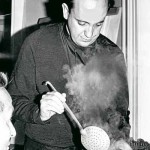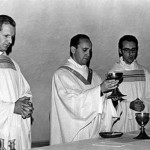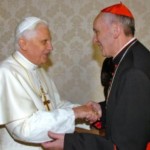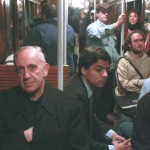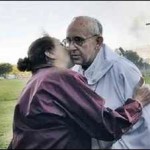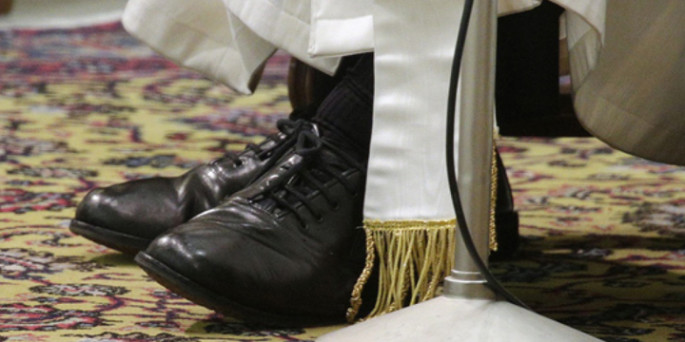
Francis: Austere to the core
In an interview conducted by Lenier González of Cuba Posible, Manuel Alberto Ramy, editor of Progreso Semanal, gives his impression of the upcoming visit to Cuba by Pope Francis. Progreso Weekly translated the interview.
What’s your opinion about Pope Francis’ performance as head of the Catholic Church?
As a pastor, his main actions have been marked by his recurrence to the earliest sources of Christianity, showing them as communities that lived — I repeat, lived — the message of Jesus Christ to its fullest and in a consistent manner. He has raised to the face of a convulsed world, to the face of each of every one of us who call ourselves Christians, including the institution that he shepherds, a model of life that can be lived consistently. He has told us: Look at yourselves in this mirror and question your Christianity.

He produced the apostolic exhortation Evangelli Gaudium and the encyclical Laudato Si. The latter, while controversial inside and outside the structure of the Catholic Church and sectors of the parish, is irreproachable from the institutional point of view, since it broaches, from the strictest moral angle, the reality of a topic that’s complex and conflictive for the established powers. No papal document, from the encyclical Rerum Novarum to the present, can be wielded against him, much less the accords of Vatican Council II or the directives that emanated from the Puebla Conference, which ratified the preferential option for the poor.
The reason for the conflict with the encyclical lies in the affirmation of the unity of everything in creation and how the economic system that rules the world (that’s the detonator) not only generates poverty but also, by breaking the universal harmony, has endangered human existence and God’s creative work.
And here’s a very important condiment: Francis’ lifestyle is the same he led as Jorge Mario Bergoglio, the Jesuit priest who became Archbishop of Buenos Aires. He was a simple man, not a Prince of the Church surrounded by pageantry and adulation but as a fellow man committed to his word, which to him is the equivalent of an act. To Bergoglio, the principle is the act, according to his lucid thinking.
Can the Church, as a vertical structure very much at ease and often permeated by the ruling pseudo-culture, share and accompany the doings of a Pope like him? In Cuban vernacular, I’ll say that many chew him but don’t swallow him.
Historically, the Vatican curia, inherited from previous Popes and well assembled for years, has enjoyed huge power and, like any other bureaucracy, has the ability to thwart and/or reroute — if not downright oppose — the directives from the Supreme Pontiff. The same happens in many dioceses worldwide, where Bergoglio is seen as controversial, difficult and bitter. Cleaning house has been Francis’ first and unfinished task because he’s dealing with a well-oiled mechanism.
He appointed a nucleus of eight Cardinals with whom he can analyze and share reformist enterprises: to clean the Vatican’s finances, to reduce favoritism, to curb pedophilia, to press in his public appearances for social justice, to help the poor, to mediate in wars, and to encourage and participate in aiding those who migrate because of wars or rampant poverty.
Nevertheless, according to serious Italian sources, there are already signs of division in this committee of eight Cardinals. The names of the leaders of the various positions have already been published in the press. Every reformation implies a change in mentality, in culture and lifestyle. It is difficult to break century-old habits and commitments that are foreign to religion and to the values of Christianity.
Two years is not much time in which to develop an exact idea of Francis’ performance. But, in terms of that duration, I evaluate his performance as positive, both inside the Church and on a public level worldwide. That fact that he is controversial seems to be a condition that’s inherent to a fundamental Christian.
How much bearing does the Ignatian matrix have in Francis’ performance?
I begin by telling you that the first surprise is that the 2013 Conclave voted in favor of a Jesuit. That selection could make sense if we speculate that Bergoglio enjoyed the decisive support of Benedict XVI, who — using political jargon — may have lobbied for the Argentine Cardinal reasoning that the internal situation at the Vatican, and generally in the Church, was evidently so serious that it required Ignatian toughness, a characteristic of the Society of Jesus.
Furthermore, we might think that Benedict considered that it was the right time for a Latin American Pope who adhered to the thinking of Pedro Arrupe, who was Superior General of the Jesuits from 1965 to 1983. Arrupe planned and initiated an important shift in the pastoral course of his order, a shift that did not please John Paul II, who prioritized the Opus Dei.
We should remember that Arrupe, after suffering a paralyzing stroke, appointed his own substitute. John Paul II opposed the nomination and personally appointed an intervenor. Then, an unprecedented development occurred: Arrupe rejected the Papal appointment, with the support of most Jesuits. That was a surprising turn of events because the Jesuits’ fourth vow calls for unconditional support for the authority of the Supreme Pontiff of Rome.
Perhaps St. Ignatius of Loyola (1492-1556) would have acted similarly. In one of the occasions when the Inquisition asked him why his second-in-command, Diego Laínez, was of Jewish descent, Loyola asked, “Wasn’t Jesus a Jew?” After Loyola’s death, Laínez was chosen as the order’s Superior General. A strong challenge to the powerful Inquisition.
In my opinion, Francis, the Jesuit Pope, has reprised Arrupe’s line in the light of the current context: an active commitment (not rhetorical) to social justice, support for systemic changes where morals and the human being are the beginning and the end of all actions, and directing the Church’s educational centers more and more toward the less-favored sectors.
Let us remember that education was one of the priorities of the order’s activities. Even in its beginnings, in the mid-16th Century, the Jesuits engaged in a harsh debate with the French monarchy and the Sorbonne because they competed with that university, not only because of the intellectual level of Jesuit schools but also because the order’s classes were free of charge.
To evangelize, educate, mold character, teach science and share knowledge, and work For the Greater Glory of God (the order’s motto) were tools of the Jesuit internationalist work in the late 16th Century and early 17th Century, both in Asia and Latin America.
Let us not forget that Francis, the son of an immigrant father (a railroad worker), is Argentine. In Misiones province we can find the remains of one of the famous redoubts founded by the Jesuits. It was the Jesuits who settled the Guaraní natives, previously nomads, protected (to this today) the Guaraní language, introduced new techniques and tools for cultivation and helped to establish a social order in which Jesuits held no governing position.
The so-called Guaraní Republic was classified by positivist Augusto Comte as a model of Stateless State, i.e., the ideal republic. But the Guaranís were liquidated one century later by the coalition of empires at the time, for reasons of economic control.
That experience is part of the order to which Argentine-Jesuit-Pope Francis belongs. He also has personal experience with the cruel dictatorships in his native country (like other dictatorships in the Southern Cone) and the effects of the pure and harsh neoliberal model that forces many of his fellow Argentines to “live” next to garbage dumps. His personal experience, the tradition of his order, and his updating of Arrupe’s line help us to understand Pope Francis, the Bishop of Rome, the Jesuit priest, the man who will visit us.
Into what socio-political context will Francis land in Cuba?
Francis visits Cuba at a time when the island is going through a double process of change: one is systemic, the other generational. Both are carried out by the so-called historic generation, a factor that marks the changes, their depth and pace. But the social fabric is different: it is plural in interests and thoughts, and in some cases moves ahead of and faster than the government’s decisions.
The sense of participating in a common fate and task that existed until the late 1980s is being eroded by the frenzied personal search for individual paths of life caused by the real economic urgencies and personal perspectives for development. While this is perfectly understandable, it is also dangerous.
The strength of a country and the preservation of the culture (in a broad sense) and genuine values of a society reside basically in the sense of belonging and participating truly and effectively in a common task that satisfies the needs of people and integrates into the existing diversity.
This is the moment when Francis will step foot in our country. With his thoughts, he can help us find a better, more just and truly participative society and keep us from losing the original dream of the Cuban process: full dignity for the human being, where an unbridled quest for money doesn’t prostitute that essential quality.
How do you evaluate the role of the Cuban Church in the current national dynamics?
It depends on two factors, on the disposition of the government and the ability of the Cuban Church to act in the ongoing project. How far would the Cuban government go in fostering a greater participation not only of the Catholic Church but also of the other religions and other non-religious institutions in favor of the new endeavors and the indispensable and urgent task of recovering the lost values? Is the Cuban Catholic Church ready to participate in the spaces that might open?
I fear — it is not my wish — that, although it is not the same confrontational Church as the one that existed in the early years of the Revolution, there is in the mind and aspirations of some a Church in the style of the one in the pre-revolutionary era, which would be, of course, very different from and contrary to the one projected by Pope Francis.
For the time being, I can say that the Catholic Church contributes very importantly to social tasks, such as the care of the elderly and disabled, the food support for the needy, and projects of socio-economic development. It is impossible to forget the mediation that in 2010 resulted in the release of more than a hundred imprisoned oppositionists.
Likewise, we should remember that, on the occasion of the visit by Benedict XVI, a considerable number of common prisoners was released. In my opinion, an improvement in relations demands that both parties, government and Church, earn enough trust.
Manuel Alberto Ramy is editor of Progreso Semanal.
(Taken from Cuba Posible)


